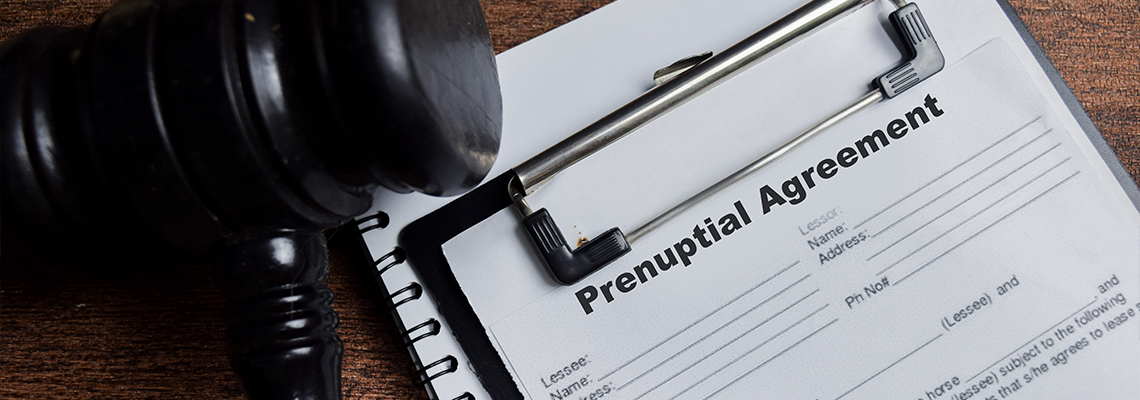Choosing adoption is often one of the most meaningful decisions a person or couple will ever make. At the same time, it can bring uncertainty, emotional highs and lows, and many unanswered questions.
Your family and your future matter. Obtain dependable legal advocacy today.

Mediation vs. Litigation: Choosing the Best Path for Your Divorce
Choosing how to end a marriage is about more than legal steps. It’s about time, cost, privacy, and what kind of communication still works between you and your spouse. Both mediation and litigation can resolve property, parenting, and financial questions, but they move very differently.
Mediation relies on guided conversation and voluntary problem-solving, while litigation follows court rules and schedules, with enforceable orders. Many families blend the two, using mediation for most topics and seeking targeted rulings only when a narrow issue must be decided before talks can continue.
At Durango Family Law, we guide clients in family law matters, including comparing mediation and court processes with practical planning and steady progress. Located in Durango, Colorado, our firm serves communities across Pagosa Springs, Cortez, Dolores, Silverton, Hermosa, Hesperus, La Plata County, Montezuma County, and San Juan County.
With clear goals and organized records, you can choose a process that fits your family and keeps decisions grounded in facts rather than friction. Contact us today for more information.
How Mediation Works
Mediation is a private setting where a neutral facilitator helps you explore terms, test proposals, and write agreement language. You keep decision-making power, which often lowers stress and allows creative solutions tied to schedules, budgets, and routines. Sessions can be joint or separate, and you can pause to gather documents before committing to terms.
Because the tone is collaborative, ideas can be floated without being binding until the final document is signed and filed. That flexibility makes it easier to solve problems in stages and to revisit sticking points after new information arrives. When both sides exchange disclosures promptly and stay focused on solutions, progress tends to come faster.
How Litigation Works
Litigation places your case on the court’s calendar with discovery, motions, and hearings. A judge sets deadlines, decides disputes you can’t resolve, and enters orders that take effect immediately. This structure is beneficial when safety is a concern, records aren’t produced, or repeated noncooperation blocks progress despite prior attempts to resolve the issue.
Formal rules govern how information is exchanged and how disputes are presented. While the process can feel more rigid, it provides accountability and clear milestones. Many cases still settle along the way, either after key documents are produced or after a preliminary ruling clarifies expectations and narrows the issues remaining to be decided.
Key Differences You’ll Notice
Once the basic structures are clear, it helps to connect them to features you’ll feel in daily life. Use the comparison below to line up process traits with your goals:
Control over decisions: Mediation leaves final choices with you, while litigation gives a judge authority over unresolved issues.
Privacy and tone: Mediation discussions stay private and problem-solving, while court filings and hearings are public and formal.
Speed and scheduling: Mediation can be set around your calendar, while court timing depends on docket space and procedural steps.
Cost patterns: Mediation tends to concentrate fees into focused sessions, while litigation spreads costs across discovery, motions, and appearances.
Enforcement and clarity: Court orders are immediately enforceable, while mediated terms carry the same force once signed and filed.
After you map these differences, match them to your priorities. If control and privacy rank highest, mediated sessions may be a good fit. If you need firm deadlines, verified disclosures, or protective orders, court oversight may be the better starting point.
When Mediation Fits
Mediation works well when both sides can exchange information promptly and keep the focus on workable outcomes. It’s especially effective when you share at least some goals, such as selling a home on a timeline or keeping children in the same school through the term. Ground rules for disclosure and communication help sessions stay productive and calm.
Even when you disagree on labels, you can test day-to-day logistics first. Concrete calendars for pickups, holidays, and expenses turn abstract debates into practical plans. If a single dispute stalls progress, consider a narrow court ruling on that issue and return to discussions once the barrier is cleared.
When Litigation Is Necessary
Some situations call for judicial involvement from the start. If records are withheld, deadlines are ignored, or safety is at risk, court orders supply the structure that conversation alone can’t provide. Discovery compels answers, and interim rulings protect children, property, or income while the case moves forward.
Litigation doesn’t close the door to settlement. Many cases resolve after disclosures or preliminary decisions realign expectations. Using hearings to clear roadblocks while continuing to negotiate other points keeps momentum without restarting from scratch or losing ground.
Preparing for Either Path
Good preparation shortens discussions and narrows disputes. Before your first session or hearing, gather the core records that drive nearly every decision in a divorce, then present them in a simple, labeled packet so everyone can work from the same facts. For clear, efficient progress, organize these core records in one place:
Income and taxes: W-2s or 1099s, recent pay stubs, and the last three years of tax returns.
Assets and debts: Statements for bank accounts, retirement plans, loans, mortgages, and titles.
Monthly budget: Realistic housing, health care, childcare, transportation, and insurance costs.
Parenting calendars: School schedules, activities, transportation plans, and any special needs.
With these materials organized by date and topic, both routes move faster. You’ll spend less time chasing documents and more time solving the issues that matter most to your family.
Costs, Timing, and Emotional Load
Costs depend more on behavior than labels. Sessions stay lean when disclosures are complete and meetings are focused, while court costs rise when discovery fights escalate or multiple hearings are needed. Set a budget, review it regularly, and adjust the pace if fees begin to outpace progress.
Timing relates to control. Sessions can be scheduled around work and family demands, while court dates are set by the docket. Emotional load also differs. Facilitated talks often feel steadier, while formal hearings can feel heavier. The better fit is the one that supports forward movement without adding avoidable strain.
Parenting Plans and Children's Needs
Parenting questions respond best to concrete planning. Rather than debating titles, start with school-year routines, holidays, travel, and decision-making. When you translate values into calendars and communication tools, many disagreements fade because the plan answers them in practice.
The same method applies to expenses. Transparent records of income and costs simplify discussions and decisions about child support and shared expenses. Whether in a session or a hearing, having a practical plan for exchanges, pickups, and communication helps your family establish a stable routine.
Moving Between Paths
You can begin with mediation, ask the court to decide a narrow issue, and return to discussions once that point is resolved. The reverse works too. A case that starts in court can settle at any time when the terms are ready for signature. Treat progress as cumulative, so agreements from one setting carry into the next without relitigation.
This flexibility lets you use the tool that best fits the issue at hand. If calendars align and trust is workable, discuss terms directly. If information stalls or safety is at stake, ask the court to set clear steps and deadlines. The goal is steady, documented progress that leads to durable orders.
Contact Us Today
If you’re trying to choose between mediation and litigation in Colorado, Durango Family Law can help you compare options and plan next steps. Based in Durango, we serve Pagosa Springs, Cortez, Dolores, Silverton, Hermosa, Hesperus, La Plata County, Montezuma County, and San Juan County. We’ll review goals, organize documents, and chart a path that fits your family and timeline. Reach out to get started with our experienced family law firm.
RECENT POSTS
Marriage is one of the most meaningful commitments a couple can make. It’s full of hope, excitement, and long-term plans that reflect a shared future. But with that excitement often comes difficult conversations.
Grandparents often play a vital role in a child’s life, providing emotional support, stability, and family continuity. When parents face divorce, separation, or other disputes, grandparents’ involvement can become crucial. Courts may recognize that maintaining these relationships benefits the child, but decisions aren’t always straightforward.



